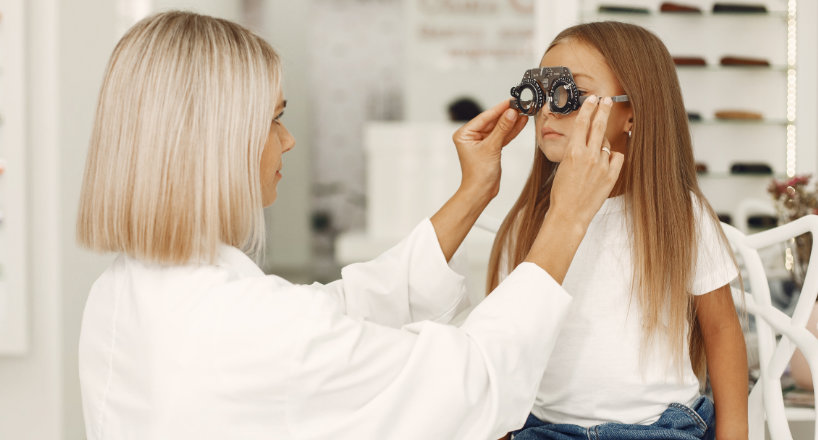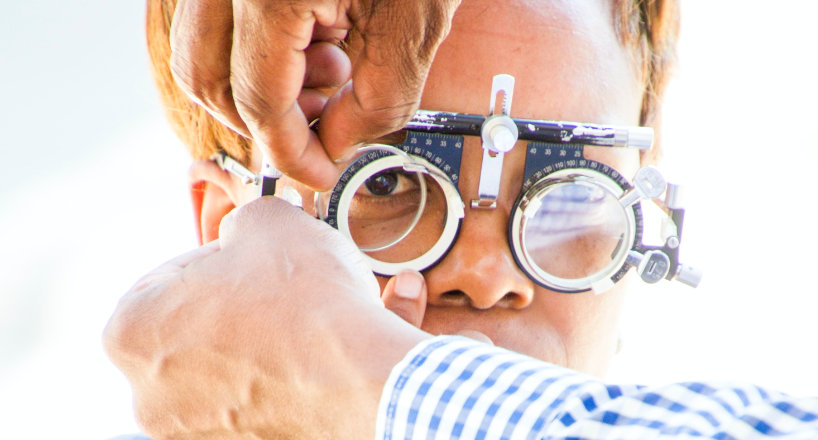Visiting Your Eye Care Professional
Whether you or a liked one are having a first eye test, a repeat eye examination, or seeing a brand-new eye doctor for the first time, there are a variety of routine concerns you can anticipate. However, your responses to these concerns throughout eye exams are anything but regular for your eye doctor.
That’s because there are any number of factors in your case history that can add to present or prospective vision issues. Comprehending your lifestyle and explaining any visual problems you’re having helps to point your eye examination in the right direction. And there are medical conditions, medications, and scenarios that can put you or a family member at a greater threat for certain eye diseases.

Though the procedures and treatments involved in an eye doctor checkout and examination are similar for everybody– your test is special to you and you alone.
That’s due to the fact that the procedure of examining your visual acuity (sharpness), and visual ability, and after that utilizing different makers and procedures to analyze your eyes, is as private as a fingerprint.
Gradually, your vision and overall health changes. That, more than anything, is why there’s a basic treatment to follow during an eye test, and why it’s essential to visit your optometrist. Without eye doctor checkouts, these crucial modifications in vision and eye health may go unnoticed.
An eye doctor visit is a process
Beyond what you need to understand going into a test, understand that visiting your optometrist is a process you ought to repeat frequently to preserve eye health and ideal vision.
- You can expect an optometrist checkout to last about an hour or two, depending upon whether or not you’ll require to have your pupils dilated (opened up) with unique drops to enable your eyecare expert to fully evaluate the internal structure of the eye.
- Your optometrist see begins with an evaluation of your eye examination history, and any visible changes in your sight, your lifestyle, and any modifications in your medical condition that might affect your vision. (This consists of understanding all medications you’re taking.)
- Then you’ll go through simple visual skill tests created to inspect your general vision, near vision, and side vision. These tests may reveal vision errors that need correction; errors that generally direct your test toward unique devices utilized to precisely determine your prescription.
But expect a lot more out of your see to the eye doctor– because fixing vision and keeping excellent eye health do need additional, regularly-performed tests.

Visit regularly
Visiting your optometrist routinely is the only trustworthy method to maintain healthy sight and potentially prevent mild to severe eye diseases.
For kids, teenagers, and grownups of any age, an eye doctor check out needs to occur regularly; at the minimum when every two years, and more often if you currently have eye illness, are at risk or have diabetes, or are approaching phases in life that put you at danger for age-related eye disease.
Things to understand before eye exams
Beyond having your vision insurance details, needed payment, and identification prepared, here’s a list of things to understand prior to you approaching the front desk at your next eye exam.
- What eye issues are you having now? Is your vision fuzzy or hazy at specific distances? Do you have issues in your side vision? Are you experiencing discomfort or pain in particular lighting situations?
- Do you have a history of any eye issues or eye injury? Do you have an existing prescription for glasses or contact lenses? Are you using them frequently, and if so, are you still happy with them?
- Were you or your enjoyed one born prematurely? Have you had any health problems recently such as hypertension or cardiovascular disease? Are you diabetic? Are you thinking about being overweight?
- Are you taking any medications? Do you have allergies to medications, food, or other products? Seasonal allergies?
- Has anyone in your household (consisting of parents) struggled with eye issues or diseases such as cataracts, glaucoma, or macular degeneration?
- Has anybody in your household (including parents) struggled with high blood pressure, heart problems or diabetes? What about other health problems that can affect the whole body like blood conditions or cancer?
Eye tests consist of a detailed history due to the fact that numerous things you may consider unrelated to vision might really impact your existing vision, or expose prospective threats for establishing a particular eye illness.
Be ready to supply a total history at your next eye test, and help the front desk, and your eye doctor, best prepare for the examination that follows.